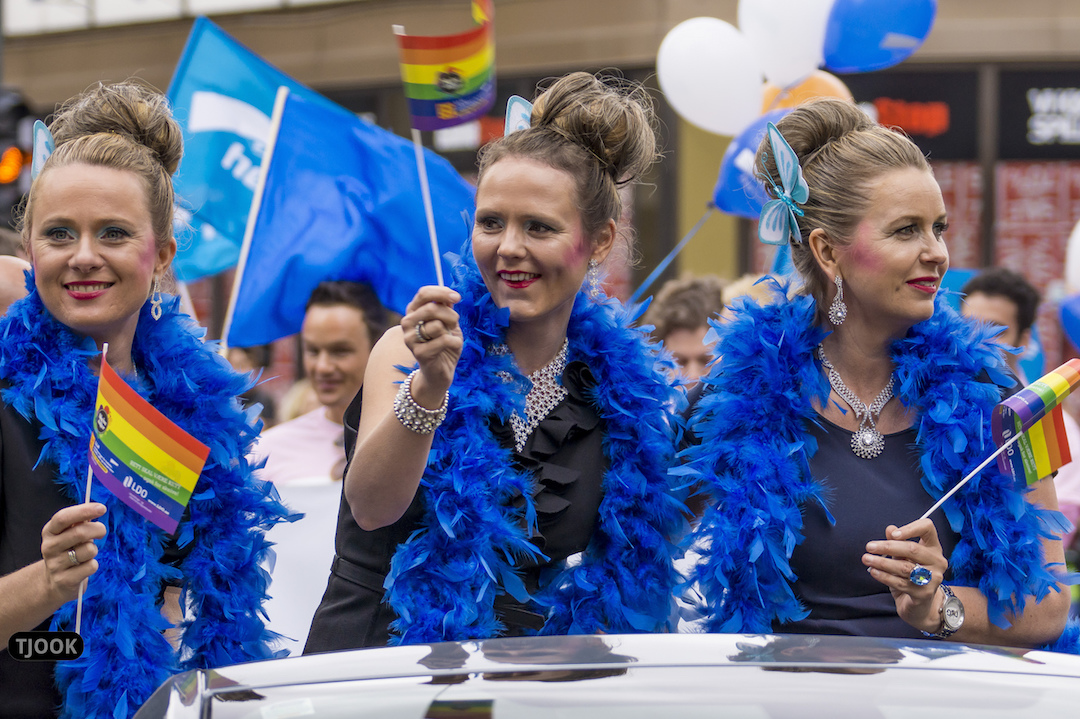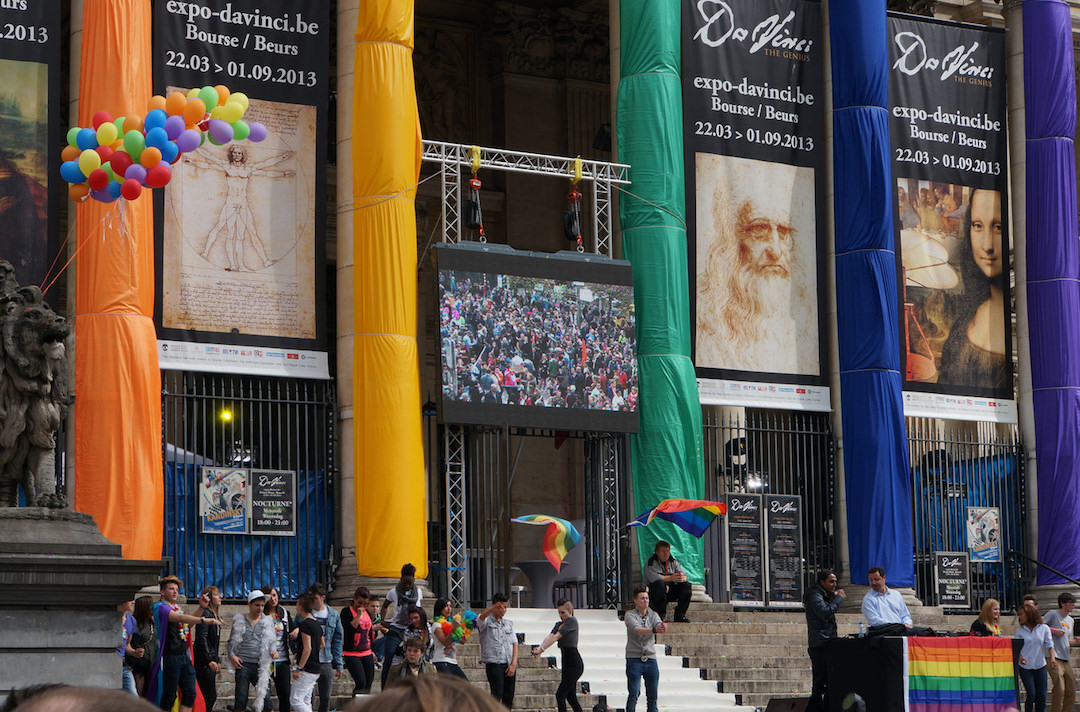Europe is one of the most progressive regions of the world, especially when it comes to LGBTQIA+ rights and equality, from passing inclusive legislature to simply providing people with a fun night out. We’ve checked out some of the best European countries for LGBT rights, and you’ll find them ranked here.
Norway

Is it any wonder that Norway, often considered to be one of the happiest countries in the world, is also up there with LGBTQIA+ rights? Norway was the second country in Europe to provide free HIV-preventing PrEP drugs through its national health service in 2016, which reduces the risk of HIV infection by up to 86%.
The country has also made it easier for trans people – including children – to legally confirm their gender by signing just one form. Same-sex marriage has been legal in Norway since 2009, even approving weddings in its Evangelical-Lutheran church, a big progressive step forward.
Belgium

Belgium has always been one of the most progressive countries in Europe and the world when it comes to LGBTQIA+ rights. Same-sex sexual activity was legalized in 1795, and Belgium was the second country to legalize gay marriage in 2003. Around a thousand same-sex marriages are celebrated each year.
Many cities within Belgium have LGBTQIA+ communities and areas, like Arc-en-Ciel in Brussels and across Wallonia, and Het Roze Huis in Antwerp, and there are plenty of events around the country, including two Pride marches (Belgium Pride in Brussels in May and Antwerp Pride later in the summer).
The Netherlands

Say hello to the first nation to legalize same-sex marriage: The Netherlands. The law passed in 2000, showing that the country meant business when it comes to equality at the turn of the new millennium. This won’t come as a shock to many, given the world-renowned trait of tolerance The Netherlands has across the board.
Amsterdam has many LGBTQIA+ events, like Gay Canal Pride, a floating celebration with boats down the city’s infamous canals instead of traditional parade floats (on land). It hosted the European-wide EuroPride festival, during the same period of time as Amsterdam Pride, making a big statement in the city and drawing in crowds of thousands.
Malta

In 2016, Malta became the first country in Europe to ban gay conversion therapy after their parliament in Valetta unanimously approved bill outlawing attempts to “cure” homosexuality. Conversion therapy is still legal and practized in most countries around the world, so bringing legal attention and punishment to this is a smart move.
Malta has twice been named the European country that best respects the rights of LGBTQIA+ people by the advocacy group ILGA-Europe, which is shown through the lowering of the age at which you can request a legal confirmation of gender without parental approval to 16.
UK

Britain hosts some of the most energetic and most visited pride parades in the world, such as London, Brighton and Manchester and a progressive stance on gay rights, legalizing gay marriage in 2013 (in England and Wales) and 2014 (in Scotland). In London, almost every area has gay pubs, bars, and clubs, but the best neighborhood is probably Soho.
In Manchester, you can learn about the city’s LGBTQIA+ history in Sackville Gardens, a park with three historical monuments, including the Alan Turing Memorial, the Transgender Remembrance Memorial, and the Beacon of Hope, a sculpture paying tribute to those affected by AIDS.
Ireland

Ireland made waves in 2015 by becoming the first country to vote on same-sex marriage through a referendum, with a 62% majority. The fact that it was entirely decided by the people of Ireland was a huge social milestone, and the world celebrated along with them.
Dublin is a strong LGBTQIA+-friendly city within Ireland (many of its constituencies voted yes to gay marriage was 70% or more), hosting the International Gay Theatre Festival every May, and paying tribute to Oscar Wilde (who was born in the city) with a colorful memorial statue inside Merrion Park across from his former house.
Sweden

Sweden has long been LGBTQIA+ friendly, particularly with Stockholm’s active community. The capital’s annual pride celebration is not just the usual parade, but also includes Pride House, where conferences and seminars are held in the week leading up to the parade, and Pride Park, an open-air festival with concerts, parties, and shows. There’s also an unofficial ‘gay’ hotel, Berns Hotel, which has two restaurants, a club, and a concert venue where Diana Ross and the Supremes have played.
Finland

Finland has allowed same-sex unions and partnerships with restricted rights since 2002, but voted for same-sex marriage in 2014, coming into effect in 2017. After the vote was passed, Finland was met with a lot of opposition through a petition demanding the repeal of the legislation, signed by over 100,000 people. Kudos to the Finnish Parliament, however, as the petition was rejected – they voted 120-48 in support of upholding the law.
Denmark

Fun fact: Denmark was the first country in the world to actually legally recognize same-sex couples in civil partnerships in 1989. It’s somewhat surprising to some that it took until 2012 – not even within the top 10 – for the country to legalize gay marriage. Nevertheless, Denmark remains one of the most open and progressive countries; Copenhagen has an annual pride event, it’s home to the oldest official gay bar, Centralhjornet, and the adjoining square to City Hall Tower was named the ‘Rainbow Square’ in recognition of the LGBTQIA+ community.
Germany

Around the world, Germany is perhaps considered one of the most progressive and open European countries for the LGBT community. Berlin specifically is a place where everyone can be whoever they want to be, hosting the annual gay pride holiday, Christopher Street Day, which brings half a million visitors with a parade and parties throughout Berlin over a span of almost two weeks. The lesser-known Kreuzberg Pride is also on the same day.
What’s nice about Berlin is that it ties in its own history with LGBTQIA+ issues, most notably the monument to LGBT victims of the Holocaust. Given all of these positives, it might be surprising to find that although Germany legally recognizes civil partnerships, it took until October 2017 for the country to legally recognize marriage equality.
Spain

Barcelona is a year-round LGBTQIA+ destination because of its warm climate, delicious tapas, and the well-established LGBTQIA+ community. Events in the city include Bear Pride in March, Barcelona Gay Pride in June and International Gay and Lesbian Film Festival in October. Spain legalized same-sex marriage in 2005 (the third European country to do so) and in a 2013 study asking if homosexuality should be accepted by society, 88% of participants answered yes, showing that as a whole, Spain is pretty open-minded.
France

France has had an often turbulent relationship with gay rights – there have been attacks in response to advanced legislation, for example when legalizing gay marriage and adoption rights. Largely, however, the country is accepting, and LGBT life in Paris is still very much alive and supportive. If heading to the capital, the gay neighborhood in Le Marais is where to head for nightlife. Local city tour operator Gay Locals offer both historical and nightlife-themed LGBT tours through Paris.
While much of Europe is considered a safe-haven for LGBTQIA+ travelers, there are incidents reported around the world – even the most open and accepting countries are not without fault. However, some careful preparation before traveling means travelers of all genders, sexualities, and presentations can have a great time traveling through Europe!


